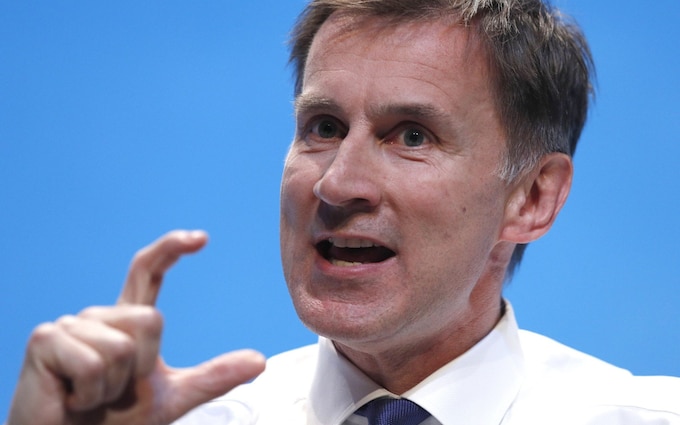There is a way to give public sector workers a pay rise and save the Government a lot of money.
The bizarre mechanics of public sector pensions are not fit for the 21st century

On Monday, millions of people will hit the jackpot. Those lucky enough to have had a public service pension for more than a year will receive a huge 10.1 per cent rise in their payments, based on the CPI rate of inflation for the year up to September 2022.
Those with private sector pensions will receive rather less. Schemes often cap increases at 5 per cent, and most annuities (pensions bought with defined contribution personal pension pots) will yield no increase at all. It also outstrips the majority of workers, where the average pay increases in the public sector (4.8 per cent), and private sector (5.9 per cent), are far less generous.
Public sector pensioners have become the most economically privileged group in the UK. How can this be?
The answer is they are beneficiaries of an unreformed pension system designed when economic conditions, and life expectancy, were very different. In 1950, life expectancy for a baby born in the UK was around 68; today it is closer to 82. For a pension that starts at 66, this significantly increases the cost.
It is notable that while private companies also used to offer similarly generous pensions, within the last two two decades they generally closed them. This happened not just because of increased longevity, but because the returns on invested contributions consistently fell short of those that were needed to pay pensions as they fell due.
Actuaries calculated that the contributions required to meet the pensions were so high that they were deemed to be unaffordable, and workers were instead given higher salaries and told to make their own arrangements. This spurred the rise of defined contribution pensions, whose value is not guaranteed and depends on investment returns.
So how did the public sector pension scheme survive? The unique characteristic is simple: while both public sector employers and employees do make pension contributions each year into the pension system, the money is not invested in a fund.
It is instead spent, and HM Treasury takes on the burden of paying the pensions. This fact has meant that at no point did the Government’s actuaries demand unaffordable contributions to keep the fund solvent because there was no fund to keep solvent. Hence the financial pressure never built to the point that the employer could no longer afford to promise these unreformed gold-plated pensions.
There have been several public sector pension reviews over the past few decades, and although there has been much detailed tinkering none has produced any fundamental change. The last major public sector pensions review – the Hutton review – was published more than a decade ago.
Despite the public claims of the Coalition government of the time, it did nothing to change the generosity of the whole public pension system. It simply shifted the deck-chairs on the sinking ship by increasing the benefits of the lowest earners, paid for by reducing the benefits of top earners. I say “sinking”, because as there is no fund to pay for these pensions, they have become a burden on future taxpayers.
That burden is now about £2.6 trillion, more than a little over 100% of GDP. And remember, this is to pay for the pensions of a privileged fifth of the workforce, not the country as a whole.
Despite this generosity, many public sector workers feel they are underpaid for difficult and challenging work, with the recent and current public sector strikes an obvious symptom of this malaise. No matter how generous, their pension entitlements are too distant to be useful today. This offers us an opportunity to close the gap between the reality of super-generous pensions, and what ordinary workers actually want.
To understand a possible solution, we can peek into the bizarre mechanics of public sector pensions. The Treasury plays a game with itself in which each year it gives money to public sector employers (say, your local education authority) so that they can give the money straight back to the Treasury in employers “pension contributions”.
To that, they then add the employees pensions contributions, which the employer has deducted on employees’ payslips. The Treasury calculates the amount of money needed by pretending that the money goes into a pension fund to pay the pensions promised. But pretence it is. The money sent to the Treasury is nowhere near enough to fund the future promises, and anyway is promptly spent rather than saved in a fund.
Neil Record is a former Bank of England economist and Chairman of the Institute of Economic Affairs. DT.
.jpeg)